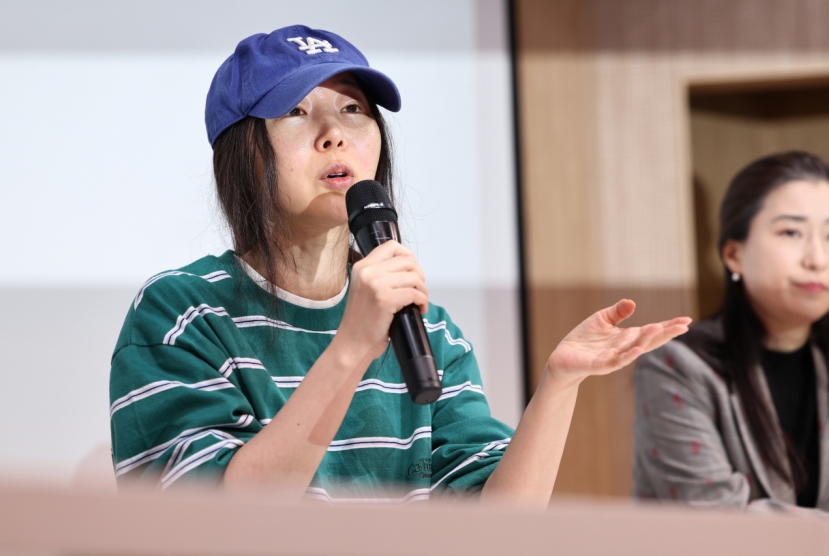At long last, the 51-month marathon is about to finish. The runners are passing the main gate of the stadium and entering the final stretch. Fifty-one months and three days have passed since the trade ministers of the two countries signed the Korea-U.S. free trade agreement in Washington on June 30, 2007. Reports have it that the Obama administration is ready to send the FTA ratification bill to the U.S. Congress as early as this week. This signals that the agreement is likely to be ratified in the United States in time for the summit meeting in Washington, D.C. between Presidents Obama and Lee. With all the missed deadlines and roller coaster riding of ups and downs, the FTA now seems tantalizingly within reach.

It seems that the ball is now in Korea’s court. Korea is also moving toward the final stage for the ratification by the National Assembly, but it has been quite slow: The FTA bill voting will probably take place sometime in October. The completion of the U.S. ratification will speed up Korea’s remaining procedure. Few would have thought that the U.S. would outpace Korea in terms of domestic procedure.
Once the FTA bill appears on the National Assembly’s plenary session agenda, heated debates between the agreement’s supporters and detractors will grab the nation’s attention one last time. The FTA critics raised various issues and concerns when the agreement was being negotiated and signed, and they have revived their claims in anticipation of the upcoming debates ― mostly inappropriate second-guesses and worst-case hypotheses, although sometimes valid points are presented. Almost all these issues and concerns have been addressed or explained away by negotiators over the past four years. Safeguards and assistance plans have been explored and devised. The past four years have been filled with dozens of TV debates and public hearings. It is probably the case that all conceivable topics have been on the table. In fact, it is interesting to see what else is left for further discussions.
Just ask ourselves whether there is any other treaty that Korea has concluded so far since 1948 (the total number is around 2,600) that has undergone more analyses. Going through the translation review earlier in the year, virtually every bit of the treaty, including all commas and other punctuation, has been scrutinized in the most microscopic way. In any debate, there should be a moment of finality. That time has come for the Korea-U.S. FTA, and it is time to move on. The final question boils down to whether Korea wants this trade deal or not, as opposed to itty-bitty problems here and there.
This particular FTA is occurring at an important moment as the global economy is undergoing an extended recession. Recession has traditionally meant protectionism and trade barriers of all sorts by many countries, and countries like Korea with export-oriented economies have usually come out holding the short end of the stick. We should also take note of the fact that the onset of the global recession in 2008 almost instantly stymied the prospect of the FTA ratification at that time. Despite all the problems critics allege, the Korea-U.S. FTA will ensure stable access to the largest export market of Korea. At least the two countries will have a new framework to boost their bilateral trade and ride out the recession.
If the United States completes its domestic procedure to ratify the FTA first, there is no reason for Korea to delay its own domestic procedure any longer. Considering the precariousness of next year with presidential elections in both countries, maybe this is the last opportunity to get this behind us finally.
There is a whole laundry list of work to be done once the FTA is ratified. Implementation of the FTA requires both legislative and administrative follow-ups in many dimensions. There is also work to be done by companies under the FTA such as having the certificates of rules of origin arranged. Business plans and manufacturing facilities relocation decisions should been made. It is time to direct the national energy to all these practical issues. Hopefully, the month of October will see the final closure of the long pending Korea-U.S. FTA.
By Lee Jae-min
Lee Jae-min is a professor of law at the School of Law, Hanyang University, Seoul. He formerly practiced law as an associate attorney with Willkie Farr & Gallagher LLP. ― Ed.

It seems that the ball is now in Korea’s court. Korea is also moving toward the final stage for the ratification by the National Assembly, but it has been quite slow: The FTA bill voting will probably take place sometime in October. The completion of the U.S. ratification will speed up Korea’s remaining procedure. Few would have thought that the U.S. would outpace Korea in terms of domestic procedure.
Once the FTA bill appears on the National Assembly’s plenary session agenda, heated debates between the agreement’s supporters and detractors will grab the nation’s attention one last time. The FTA critics raised various issues and concerns when the agreement was being negotiated and signed, and they have revived their claims in anticipation of the upcoming debates ― mostly inappropriate second-guesses and worst-case hypotheses, although sometimes valid points are presented. Almost all these issues and concerns have been addressed or explained away by negotiators over the past four years. Safeguards and assistance plans have been explored and devised. The past four years have been filled with dozens of TV debates and public hearings. It is probably the case that all conceivable topics have been on the table. In fact, it is interesting to see what else is left for further discussions.
Just ask ourselves whether there is any other treaty that Korea has concluded so far since 1948 (the total number is around 2,600) that has undergone more analyses. Going through the translation review earlier in the year, virtually every bit of the treaty, including all commas and other punctuation, has been scrutinized in the most microscopic way. In any debate, there should be a moment of finality. That time has come for the Korea-U.S. FTA, and it is time to move on. The final question boils down to whether Korea wants this trade deal or not, as opposed to itty-bitty problems here and there.
This particular FTA is occurring at an important moment as the global economy is undergoing an extended recession. Recession has traditionally meant protectionism and trade barriers of all sorts by many countries, and countries like Korea with export-oriented economies have usually come out holding the short end of the stick. We should also take note of the fact that the onset of the global recession in 2008 almost instantly stymied the prospect of the FTA ratification at that time. Despite all the problems critics allege, the Korea-U.S. FTA will ensure stable access to the largest export market of Korea. At least the two countries will have a new framework to boost their bilateral trade and ride out the recession.
If the United States completes its domestic procedure to ratify the FTA first, there is no reason for Korea to delay its own domestic procedure any longer. Considering the precariousness of next year with presidential elections in both countries, maybe this is the last opportunity to get this behind us finally.
There is a whole laundry list of work to be done once the FTA is ratified. Implementation of the FTA requires both legislative and administrative follow-ups in many dimensions. There is also work to be done by companies under the FTA such as having the certificates of rules of origin arranged. Business plans and manufacturing facilities relocation decisions should been made. It is time to direct the national energy to all these practical issues. Hopefully, the month of October will see the final closure of the long pending Korea-U.S. FTA.
By Lee Jae-min
Lee Jae-min is a professor of law at the School of Law, Hanyang University, Seoul. He formerly practiced law as an associate attorney with Willkie Farr & Gallagher LLP. ― Ed.



![[Herald Interview] 'Amid aging population, Korea to invite more young professionals from overseas'](http://res.heraldm.com/phpwas/restmb_idxmake.php?idx=644&simg=/content/image/2024/04/24/20240424050844_0.jpg&u=20240424200058)















